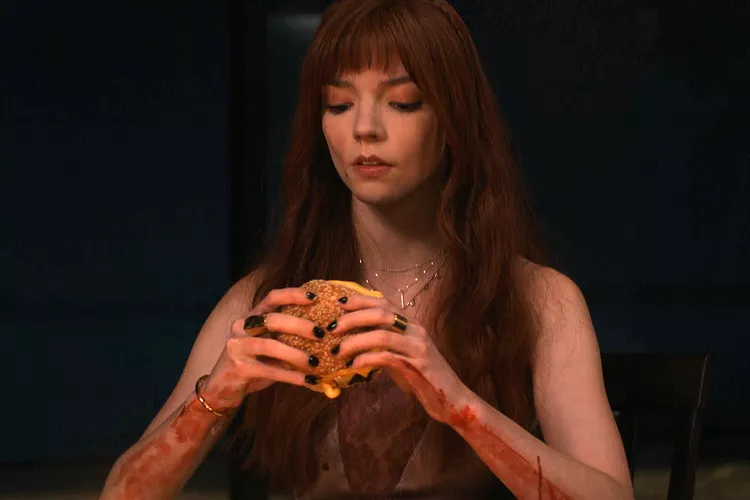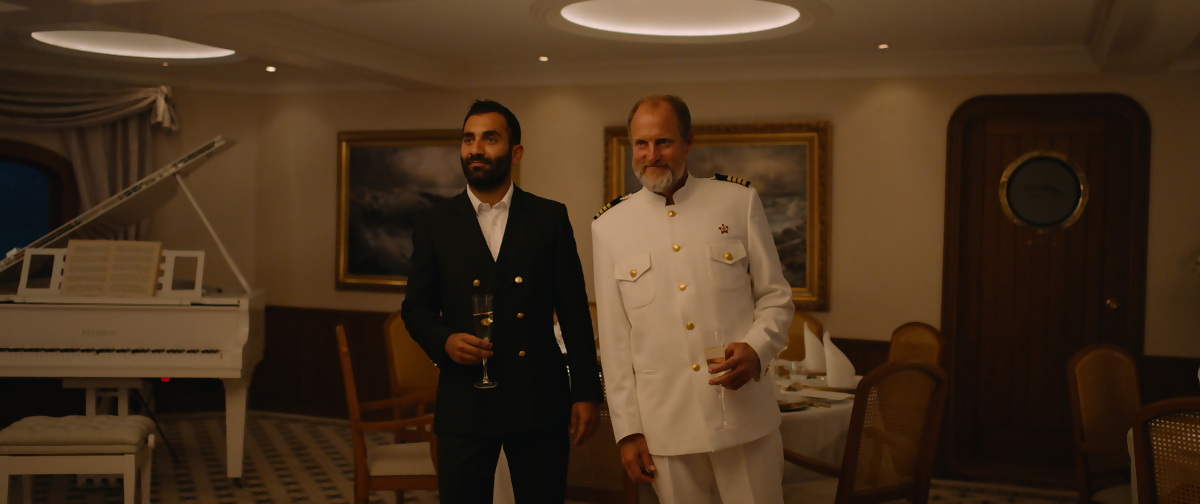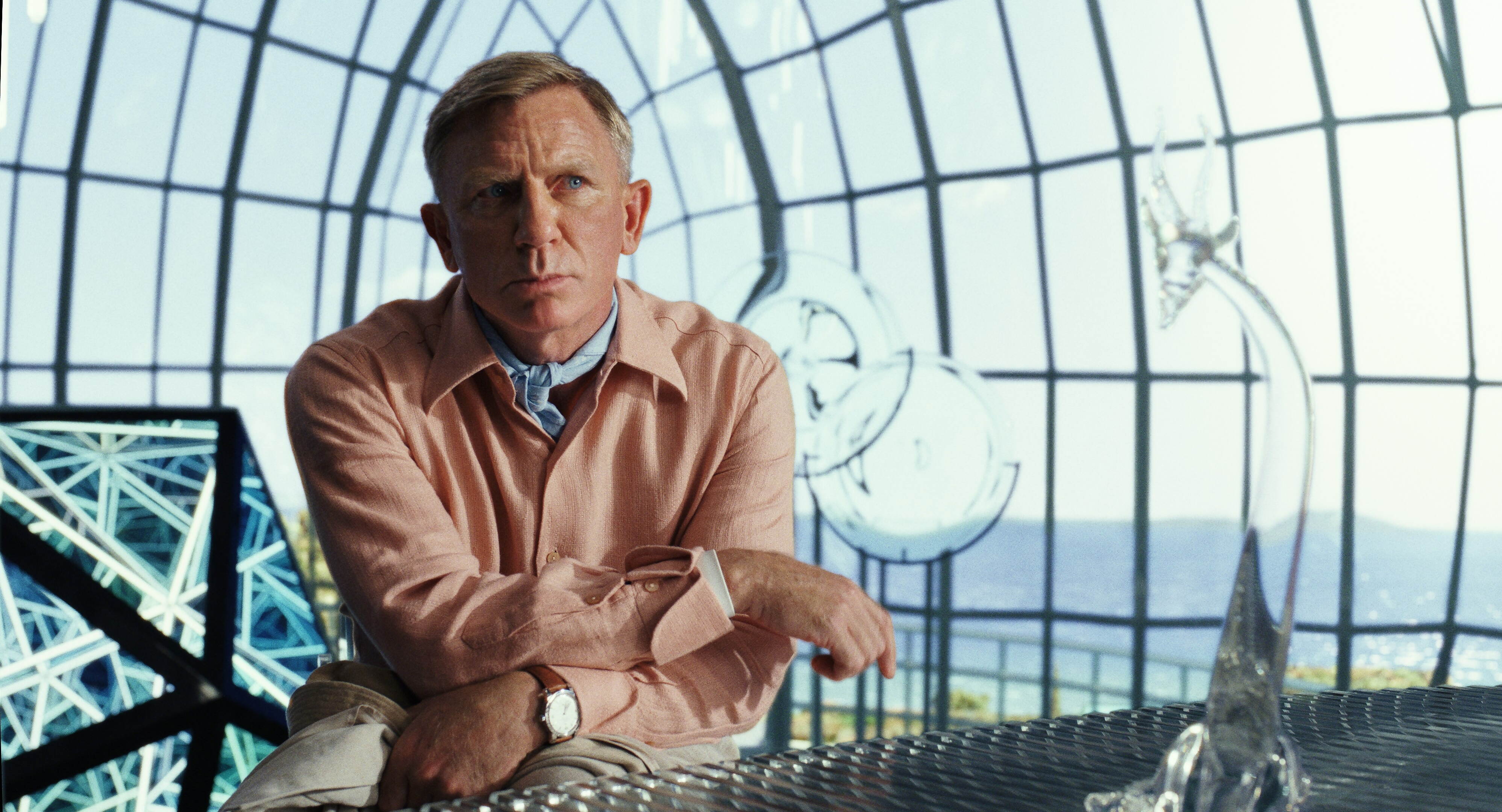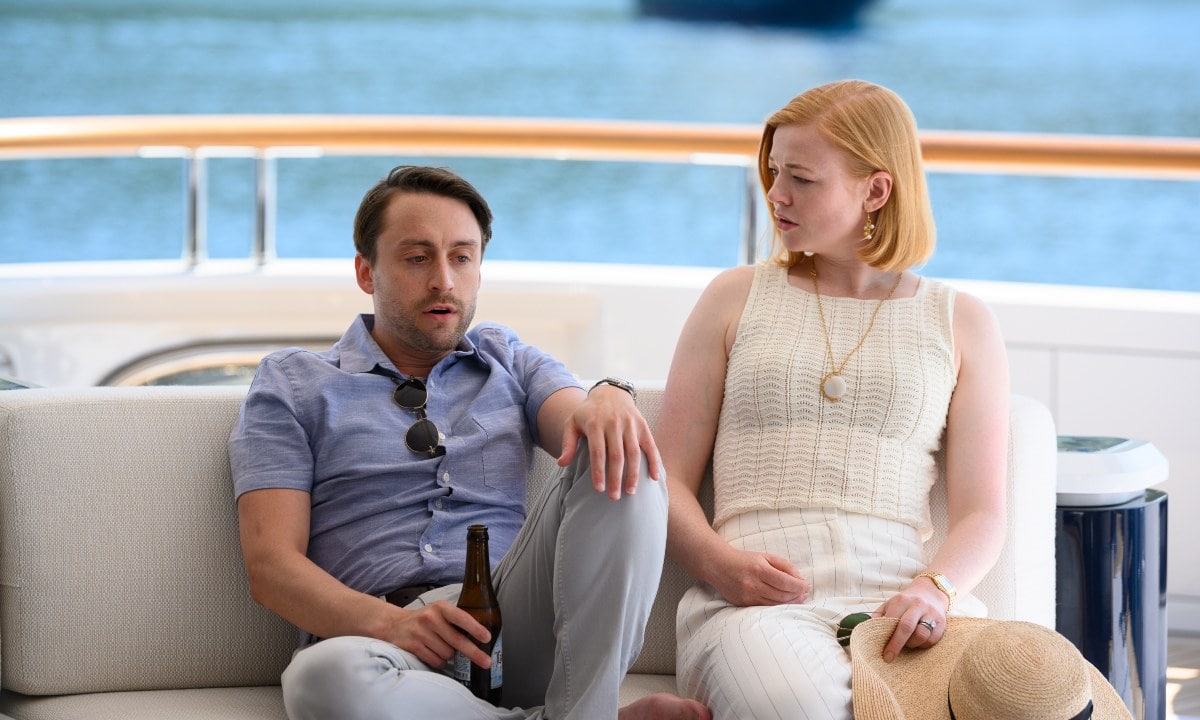
In the new wave of ‘eat the rich’ movies, capitalism is the most marketable theme in entertainment. The Menu and Triangle of Sadness’s success are proof.
Among a recent wave of class-critical films and TV shows are current cinema offerings, The Menu, Triangle of Sadness and Glass Onion; TV groundbreaker The White Lotus; the seminal hit Succession; and before that, Bong Joon-ho’s masterpiece Parasite. They’re drenched in cynicism, but more ironic than their own biting commentary is how the productions themselves capitalise on capitalism.
Despite this, there’s no denying that they artfully satirise the rich and out-of-touch, balancing social critique with genuine humour. As we stare down the barrel of recession, we need a comical release for our despair and frustration, and these films are the perfect outlet. Whether it’s excruciatingly cringeworthy phone sex involving the phrase “slime puppy” in Succession, that vomit scene in Triangle of Sadness or Jennifer Coolidge’s iconic character Tanya dumping her mother’s ashes while honeymooners try to enjoy a romantic boat cruise in The White Lotus — there’s more than enough to laugh at.
READ MORE: ★★★★☆ The Menu review | A devilishly delicious dish
But there’s something more than the malicious joy that these films invoke — through opulence-obsessed characters, they satiate our collective moralism and help appease a sense of middle-class guilt.
Justified or not, a particular type of self-righteous indignation manifests when we see someone publicly mocked who’s perceived to have more money and less virtue than us. It’s that pang of delight when we see an apology written in the notes app on the feed of the celebrity who seemingly has it all. The gratification when an anti-vax yogi is called out for peddling toxic weight loss tea. The self-professed “nice guy” influencer getting exposed as a serial cheater. In many ways, how we navigate social media mirrors how we watch these films and TV shows.

Woody Harrelson and Arvin Kananian star as the ship’s captain and his first officer on a luxury cruise with wealthy guests
Society is becoming more critical of individualism and wealth-hoarding (thankfully), and entertainment reflects this. But are these films a productive outlet for ethical scrutiny? At their most innocuous, they might perpetuate our desire to see the rich and self-obsessed shamed. And at their most extreme, they may widen our view of the chasm between classes and help relieve the responsibility of the middle class in our minds.
Elsa, the maitre d’ of the esteemed restaurant in The Menu, played by Hong Chau, asserts that wealthy diners will “Eat less than [they] desire, and more than [they] deserve”. The absolutism between who ‘deserves’ what and who gets to decide is the crux of class satire and how we condemn each other on social media. Ralph Fiennes’ unhinged chef Slowik deems himself the judge of what punishment his affluent clientele deserve, and so do many of us in online spaces (albeit less violently, I hope).

Parasite follows a poor family who scheme to become employed by a wealthy family, infiltrating their household by posing as unrelated, highly qualified individuals
It’s arguably human nature to want to see those more ‘deserving’ punished for their role in our broken society. Whether this is because it’s more comfortable to feel like a victim rather than a cog in the wheel or whether it’s good old-fashioned schadenfreude is up for debate. Perhaps these shows ease our guilt by giving us enough laughably pretentious characters to reassure us that we’re not part of the problem. I might put my head down when someone asks me to sign a petition, but would I offer a child a million dollars if he can make a softball home run and rip up the cheque in front of him when he fails? No way!

Daniel Craig reprises his role as master detective Benoit Blanc as he takes on a new case revolving around tech billionaire Miles Bron
It’s worth noting that when explorations of class privilege are made mostly by rich people, some see it as hijacking the system they already benefit from for further profit. However, it can also be contended that they’re using their power and access to tell stories that condemn these systems. It’s unhelpful to paint everyone involved in producing these films and TV shows with the same brush, but one wonders whether a class critique can be as deeply effective if it’s made, produced by and stars members of the echelons that it aims to deride.
That being said, producers are feasibly even more in on the joke than viewers. They’re holding up mirrors to themselves and the audience that we’re mistaking for windows. We’re on the outside peering in, laughing at the characters’ entitled antics, but every now and then, we see a grotesque glimpse of ourselves. There will never be perfectly defined lines drawn between the working class, the middle and upper middle classes and the wealthy elite, nor a clearcut threshold where we move from satirical observer to subject. After all, given a chance, wouldn’t we all live the lives we see in these films?
On the whole, there seem to be two innate desires that connect our viewing habits of class satire and our social media consumption: the desire to laugh and the desire to judge. Humour has long been used to draw attention to social issues and hold those in power accountable. Plays, illustrations, graffiti, poetry and prose have paved the way for streamable movies and TV series. And since disgraced nobility no longer hang in stocks to be publicly ridiculed, we have Instagram to fill that void. Whether we’re behind phone screens or in front of silver screens, it would seem that shame and comedy are innately linked.

Succession centres on the Roy family, the owners of Waystar RoyCo, a global media and entertainment conglomerate, who are fighting for control of the company amid uncertainty about the health of the family’s patriarch, Logan Roy
Something that these films and TV shows possess and that comment sections lack is nuance. And nuance is the key to unpacking criticism of this genre. We can hold space for self-reflection while acknowledging that the one per cent are more accountable for social demise. We can be on both sides of the proverbial window. By mocking society from all angles, social satires highlight the messiness of money and allow us to laugh our way through their depictions of cruel truths.
As Aubrey Plaza’s Harper observes in season two of The White Lotus, “It’s like we’re all entertaining each other while the world burns.” Most of us are confused, jealous, outraged and at times detached from reality — and if we don’t laugh, we’ll cry.



